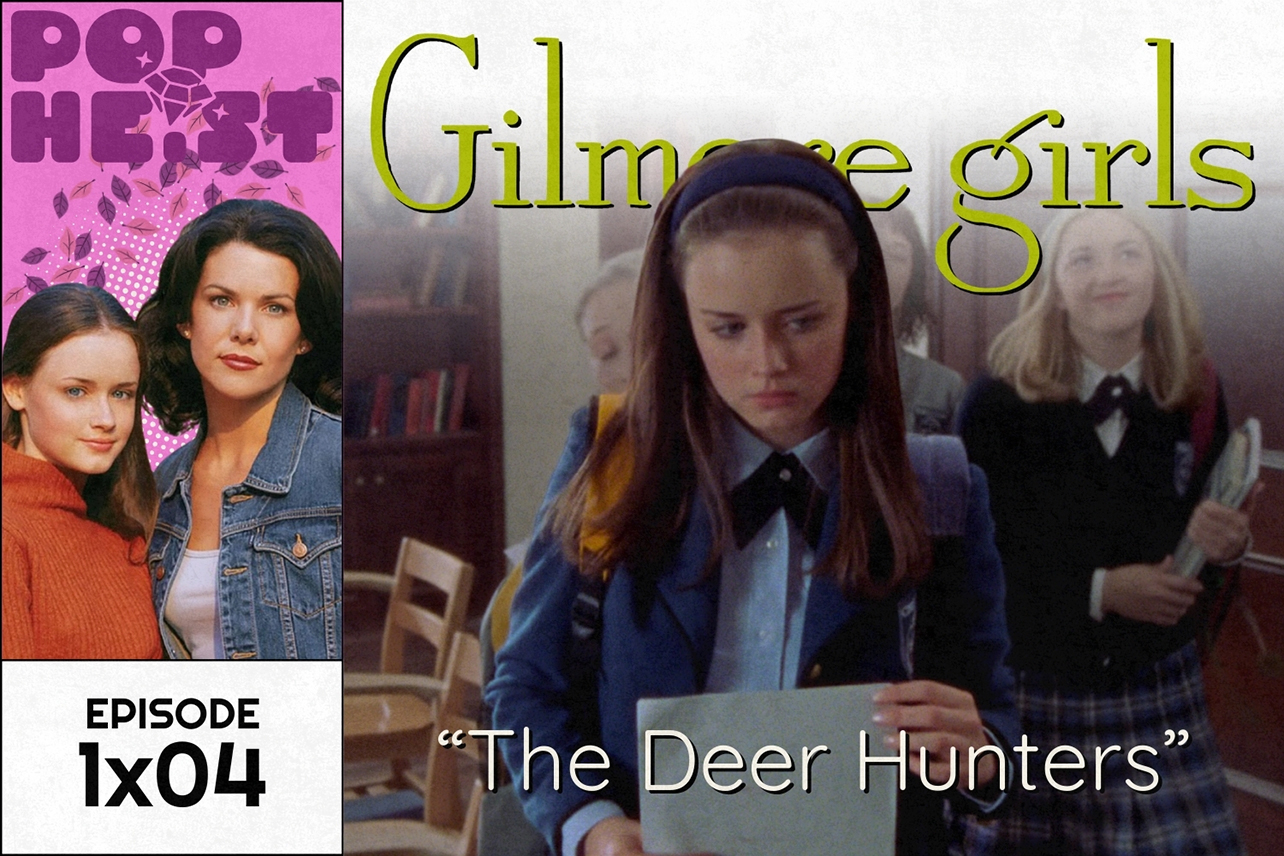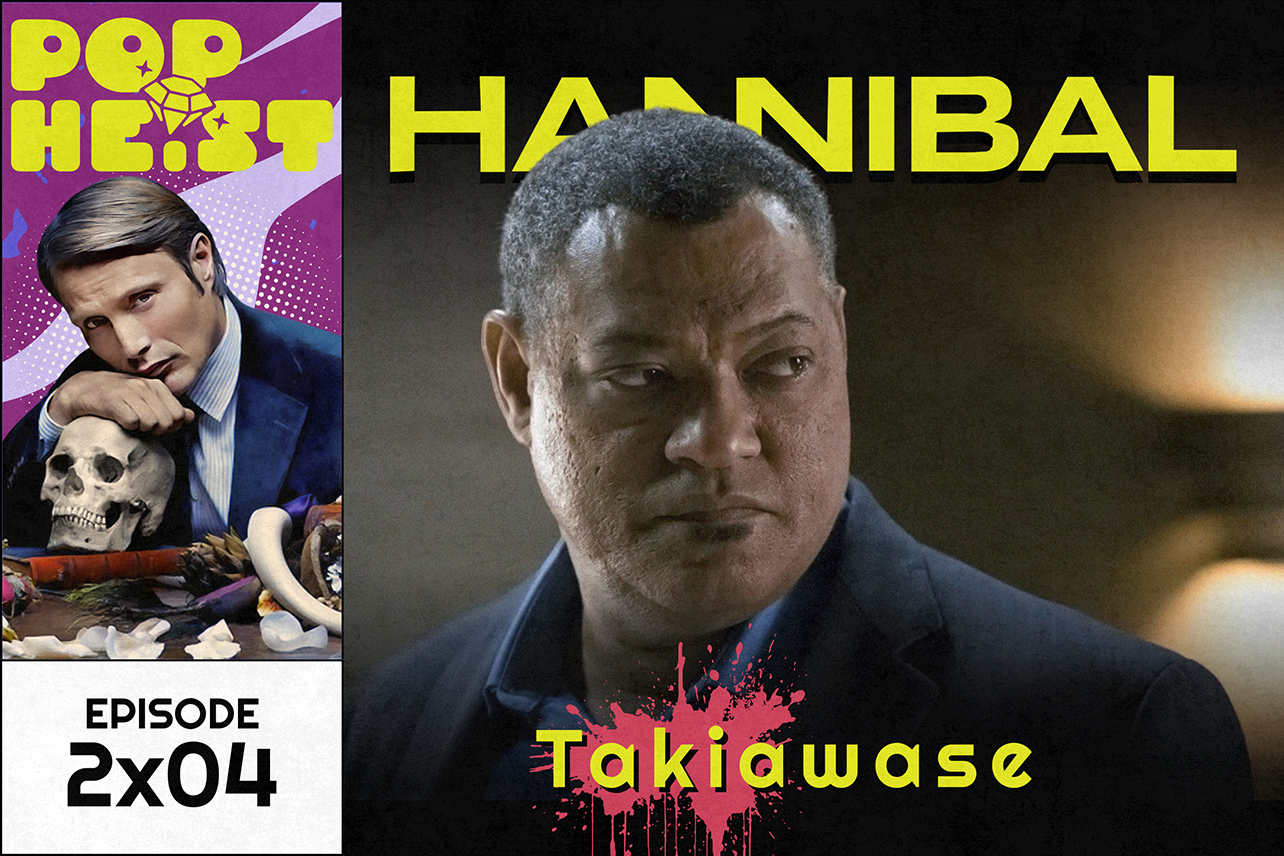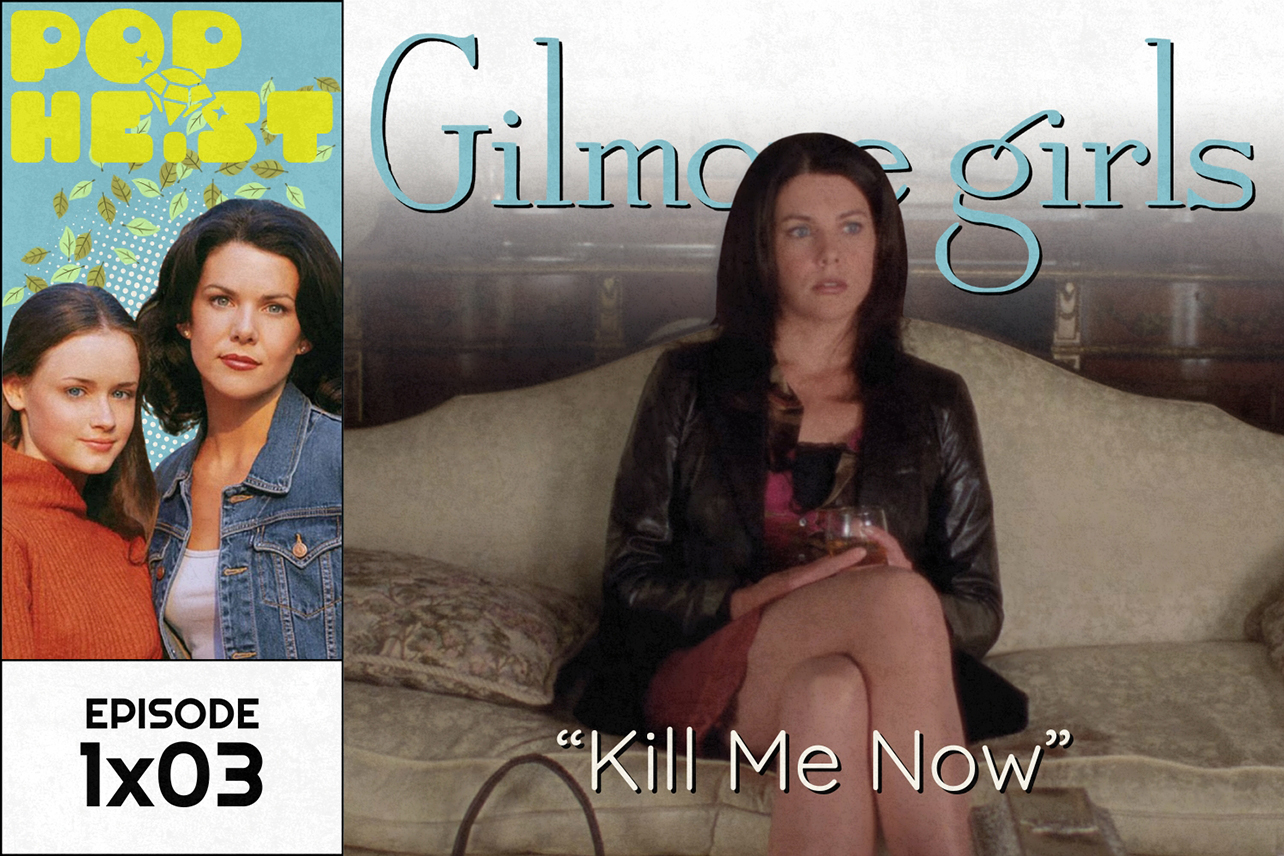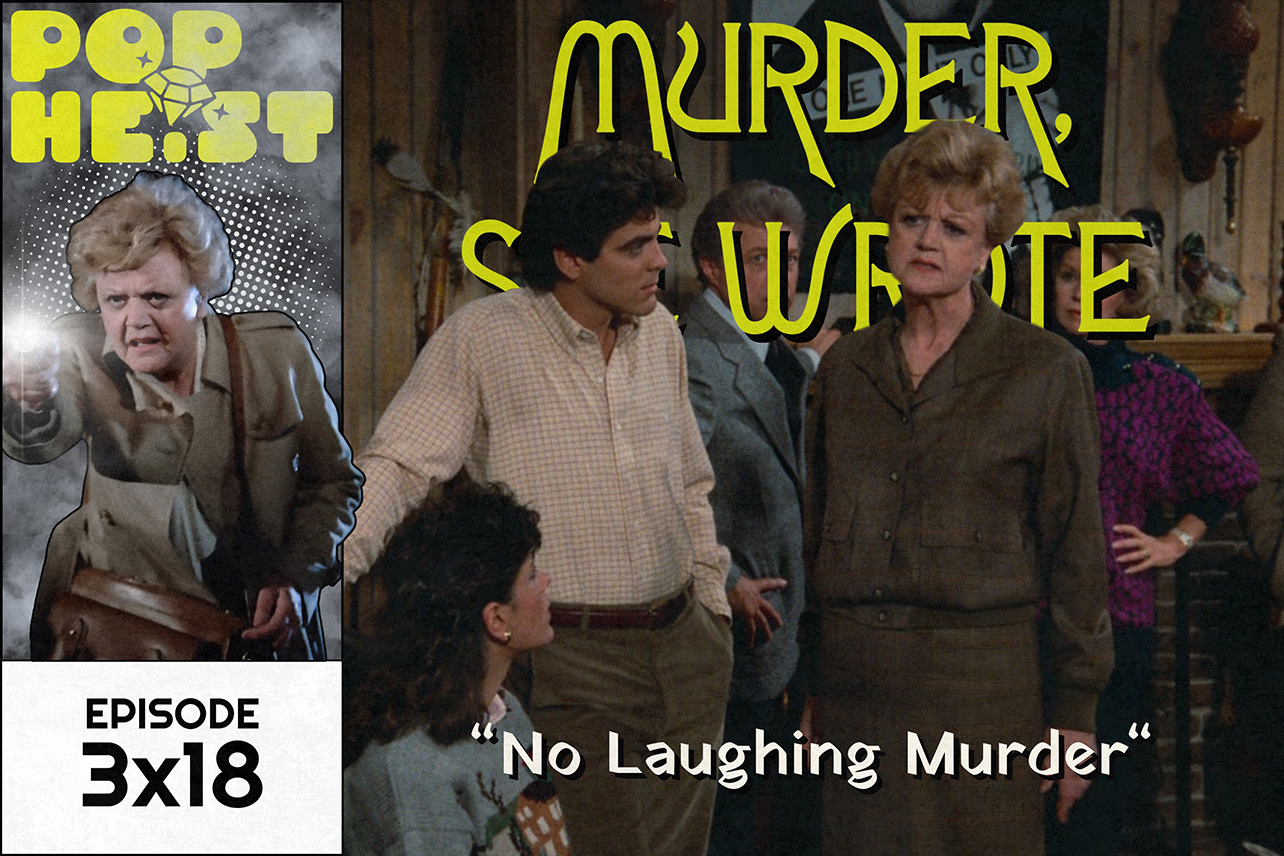Hannibal Season 1, Episode 2
"Amuse-Bouche"
Original airdate: April 11, 2013
Writer: Jim Danger Grey
Director: Michael Rymer
Cast: Hugh Dancy, Mads Mikkelsen, Laurence Fishburne, Caroline Dhavernas, Hettienne Park
Will Graham is haunted. More than usual, anyway.
"Amuse-Bouche" picks up in the middle of one of his troubled dreams, in which he's at a gun range, emptying his pistol into Garret Jacob Hobbs all over again. When he wakes, things aren't much better. He's still in Minnesota, with Jack Crawford, ready to visit the Minnesota Shrike's hunting cabin. What he finds there is an attic full of antlers, bloodstains left over from murders, and something else: A curly red hair, evidence that someone else has been at the crime scene.
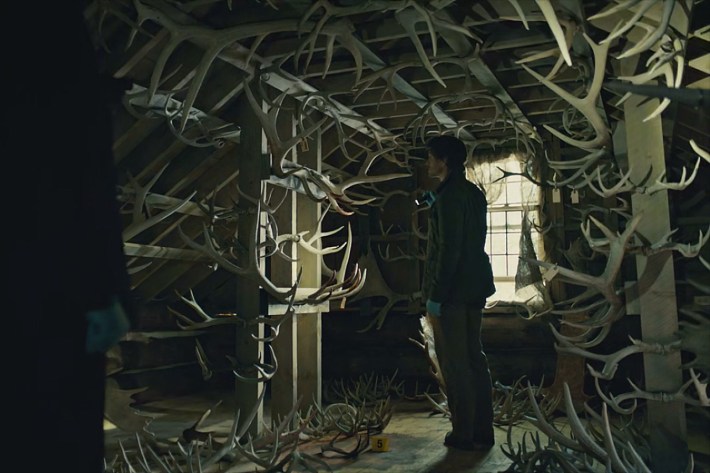
A moment later we see tabloid journalist Freddie Lounds (Lara Jean Chorostecki) sitting nude at her computer, posting the photos she took of the very same attic to Tattlecrime.com. The world is learning more about the Minnesota Shrike, and by extension, Will Graham. Which is exactly what the sensitive profiler doesn't need right now.
If Crawford was concerned about Will before, that concern is now in overdrive. After he shot Hobbs, Will spent night after night in Abigail Hobbs' hospital room, continuing the surrogate family angle we first discovered in the series premiere. He feels an obligation to Abigail, something that's threatened when Jack broaches the possibility that Hobbs' daughter may have been his collaborator and the ideal bait to lure in his victims. Jack demands that Will see Hannibal Lecter for a psychological evaluation so he can return to the field, and when Will protests, Jack points out that Will was once pulled out of field work because he couldn't bring himself to shoot anyone. Yet he shot Hobbs 10 times, and he's still dreaming about it. Almost like he has a taste for it.
This is a fascinating and recurring dynamic throughout the show, one that facilitates the delicate dance of personalities between Will and Hannibal. No one questions that what Will does, and how he does it, is traumatic for him. Everyone gets that his sense of pure empathy leaves a mark each time he gets in a killer's head. What remains unanswered is whether or not Will is ever able to truly leave those places, if they're wiped away by the next case or if they linger. And because Hobbs is the first person Will's ever killed, everyone around him (that includes us) is left to wonder: Now that he knows how it feels, does his empathy also extend to the act of killing? And if it does, could it extend to the act of killing for pleasure?
It's dangerous ground for Will, but as far as Hannibal is concerned it's exactly what he was hoping for. He immediately presents Will with a letter clearing him for a return to the field, a gesture of friendship that's also the next move in an increasingly elaborate game. Crawford and Hannibal want the same thing – to see how far Will can go down into the dark – but Hannibal's personally hoping Will might never come back up, because then he'll have what he's never had before: A partner in darkness.
But there's very little time for anyone to dwell on this, at least not now. Another killer is on the loose, and this one's got a very particular modus operandi: He renders his victims comatose, then buries them in soil out in the forest while feeding them an intravenous sugar solution. Mushrooms sprout on the bodies, turning them into briefly living gardens before they finally die and begin to decompose.
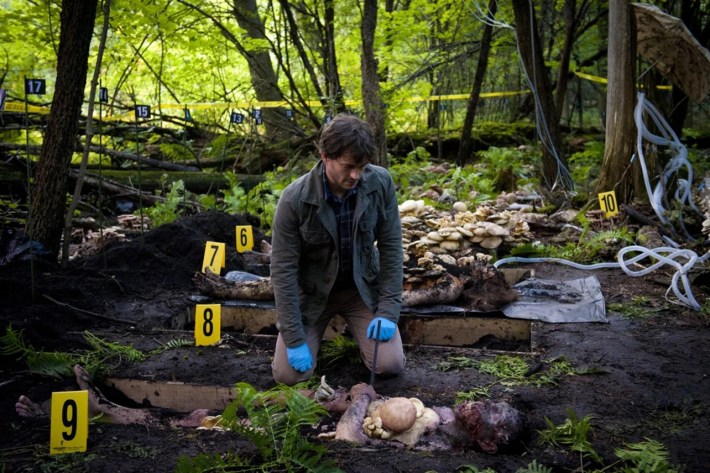
It's a strange little graveyard/fungus garden in the middle of nowhere, and it's hard for Will to get his head around, particularly after he hallucinates Hobbs' corpse in the middle of the crime scene. Meanwhile, on the other side of the police tape, Freddie Lounds baits a local detective into giving her info on Will and the case by pretending to be a concerned parent.
It's worth pausing the show right here for a moment, just so we can talk a little bit about the first of what will be many high-concept serial murders on this show. Hannibal is a show simultaneously about the malleable nature of the human mind and the human body, examining not just how killers think but what pushes them into their own conceptual space, and how we react to that space. In the weeks ahead we will find killers who do things much, much more brutal than planting their victims in a garden, but I'm putting a pin in this one because it launches a motif that's one of the best things about this show.
After resisting any time in psychotherapy with all of his might, Will's shaken enough by his hallucinations to go back to Hannibal for help. Sure, he might just be there because Hobbs is clouding his mind and preventing clarity on the mushroom killer, but still, progress is progress! Hannibal is, of course, happy to help, and the two deepen their bond by talking about why this particular killer is interested in mushrooms. Mushrooms and other fungi are fascinating organisms with the ability to communicate, to exchange information seamlessly across one vast, constantly expanding organism. So, why are they important to this killer? Perhaps he longs for that kind of connection and communication, something absent from his own life. Perhaps, for him, mycelium networks are the unlikely cure for all of society's distance, the standoffish pace of the modern world.
As Will leaves Hannibal's office, another patient arrives. We know that it's Freddie Lounds under an assumed name, and in a matter of moments, Hannibal realizes this too. Freddie's arrival in this episode is important for underlining the increased public attention on the Behavioral Science Unit, but this scene is particularly vital because, for the first time, we get to see Hannibal in his scary mode. He doesn't raise his voice, or transform into something monstrous before our eyes. He makes simple demands, maintains eye contact, and looms over the smaller Freddie, demanding she delete the recordings she's made while in Lecter's home. It's a scene with very little actual conflict. Lounds doesn't really fight back, nor does she attempt to storm out or even run. It's like Lecter, with all his knowledge of the human mind, is casting some kind of hypnotic spell, something we'll see him do to other people in later episodes, and the tabloid maven is helpless against him. It's a clever play on the baked-in danger we already sense around Lecter, and Mikkelsen plays it with such weight and pure presence that you can't help but buy the whole thing.
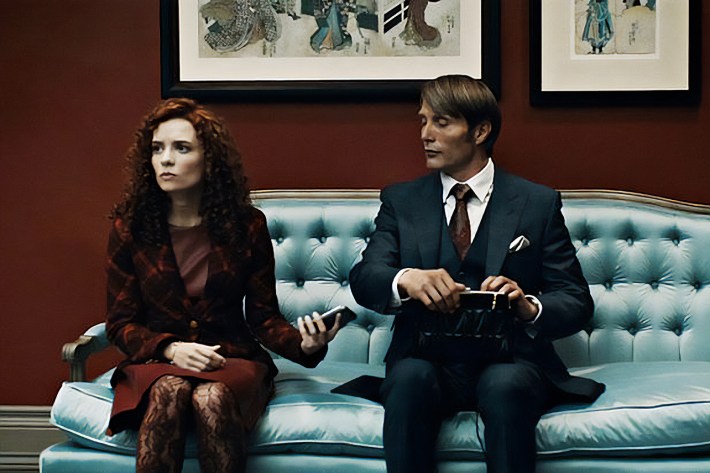
Back at the FBI, there's a breakthrough in the case. Each of the mushroom victims died of kidney failure, which leads Will to deduce that they were all diabetics who were rendered comatose by the wrong medication. This means their killer is likely someone like a pharmacist with access to the drugs, and sure enough, Will's conclusion is right. The team zeroes in on their suspect, Eldon Stammets (Aidan Devine), but he gives them the slip before they can track him down at work. At virtually the same time, Lounds publishes a piece cobbling together information on Graham, suggesting that he's the leashed maniac the FBI is using to catch the unleashed maniacs. It's not the best piece of publicity for a criminal profiler, particularly when there's an active serial killer on the loose who now knows his name.
Jack, infuriated, springs into action, stages a raid on Lounds' hotel room, and threatens to indict her with obstruction of justice for her crime scene snooping, interviews under false pretenses, and more if she doesn't leave Will alone. We got glimpses of Jack's potential for brutality in the series premiere, but this is another level, and shows how far he's willing to go to protect Will. But is he doing it for the right reasons? Is Will, in his fragile state, just being shuffled between caretakers? Will that fragility one day shatter under this pressure, and if it does, who will its shards cut first?
Moving from one of Will's caretakers to another, we find him back in Abigail Hobbs' hospital room, sleeping on the couch while Dr. Alanna Bloom slips in and reads Flannery O'Connor stories to the comatose girl. Alanna's heeled footfalls echo in Will's dreams, and before he wakes, he glimpses something that will become a vital piece of Hannibal iconography over the course of the entire series: The figure fans have dubbed "The Nightmare Stag."
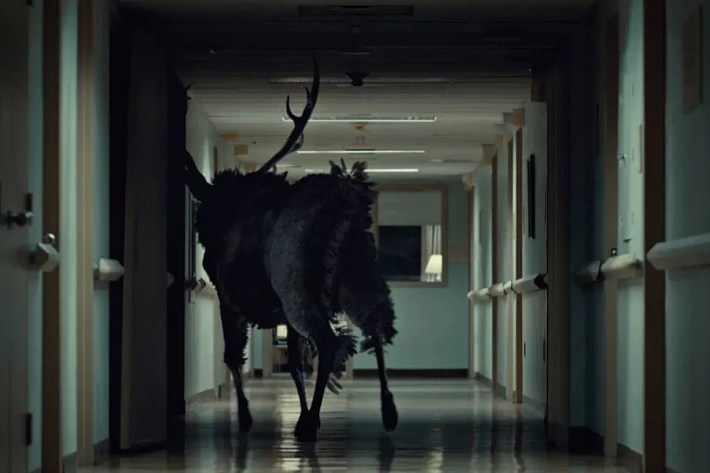
We got brief glimpses of this creature in "Aperitif," but it makes a fuller appearance here, a massive bull elk adorned with crow's feathers which stalks through the hospital halls, beckoning to Will, compelling him to follow. The imagery is pulled directly from the copycat killer (i.e. Hannibal) who led Will to Garret Jacob Hobbs. You've got the antlers and the feathers from the carrion birds all woven into one nightmarish vision which represents, though Will does not know it yet, his growing connection with Hannibal, and more specifically with Hannibal's darkness. It's the beast which emerges in Will the moment he becomes a killer, a beast Hannibal would like to nurture and grow. It's also, put simply, an enormously compelling piece of horror imagery that we will discuss in more detail as the season goes on.
Will's dream of the Stag is intercut with Alanna's arrival in the room, symbolizing the two worlds between which he's being pulled. When he wakes and finds Alanna sitting on Abigail's bed, reading aloud, he gets a brief, dreamy vision of his ideal family, the life he could have had if he'd just been able to control his inner darkness and intense anxieties.
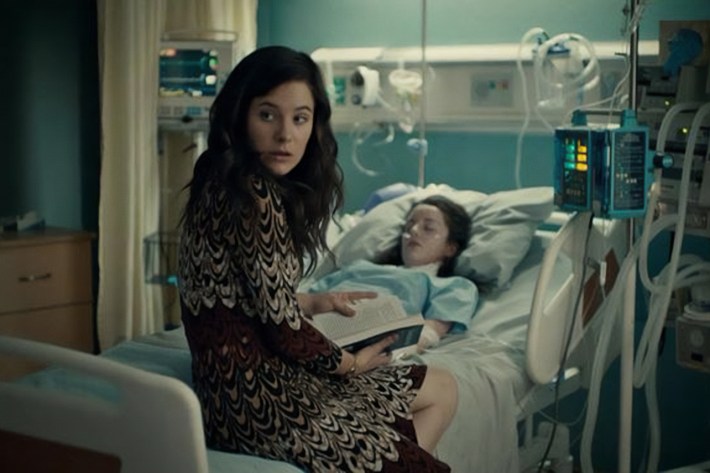
To all the world, Alanna looks like Abigail's mother, gentle and nurturing and even understanding to Will, who still hasn't left his surrogate daughter's side. It's what sits at the other end of the spectrum from the Stag, and hearing Will talk to Alanna, there's an unspoken sense that he yearns for a new kind of closeness with her, even if he can't name it in the moment.
Meanwhile, Freddie Lounds' no good very bad week gets worse when she's confronted by the cop from the crime scene, who's losing his job because she dared use him as a source. Freddie's calm, she's used to this, but what she's not used to is a serial killer suddenly emerging in a hotel parking lot and shooting the cop dead. It's our man Stammets, and he wants Freddie to tell him everything she knows about Will Graham. In the aftermath, Freddie passes this information on to Jack, but it's too late.
Stammets has already made his way to the hospital, where he disguises himself as a doctor and pulls Abigail Hobbs' hospital bed out of her room and down into the bowels of the building. Will gives chase, and this time very crucially shoots his quarry in an extremity, wounding but not killing. Hannibal was entirely right about Stammets. He's a mushroom-themed killer because he longs for the connections that mycelium can forge, the unity they promote among all living things. He wants humanity to reach back into the earth, to return to that kind of connection, but Will's less interested in that than in the horrible urge he feels to kill the man, to end his sermon.
So, with another killer caught, the episode ends back in Hannibal's office, as Will confronts these urges, the sense that he truly wanted to kill a second man and forced himself to pull back. Killing Hobbs, he tells Hannibal, felt "just," but now he's saved Abigail Hobbs from a second serial killer, and he's worried that a part of him, that Stag in the dark, just plain likes killing. Hannibal, pleased that Will is "giving voice to the unmentionable," assures him that killing people must "feel good to God," because God does it all the time, and whatever else God feels, he feels power in death. It's absolutely remarkable, in hindsight, that a series like this, a crime procedural on a broadcast network, was willing to go this far just two episodes in. Hannibal was never about Trojan Horsing the darkness of its true narrative. It was there from the beginning, and in the weeks ahead, the picture will only get clearer.
This recap was originally accessible to paid subscribers only, and future recaps in this series are available now for paid subscribers. If you haven't already, consider supporting worker-owned media by subscribing to Pop Heist. We are ad-free and operating outside the algorithm, so all dollars go directly to paying the staff members and writers who make articles like this one possible.

